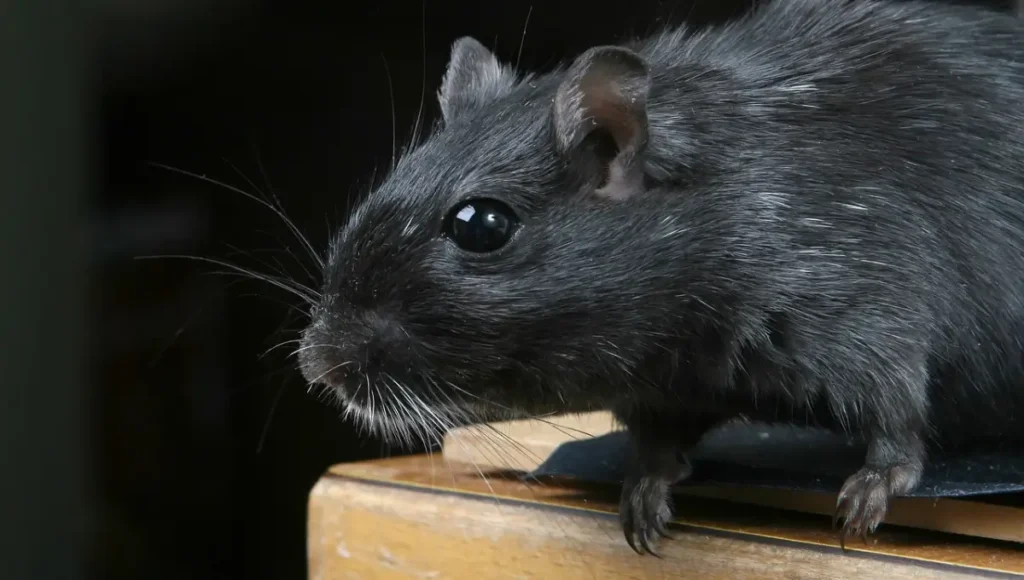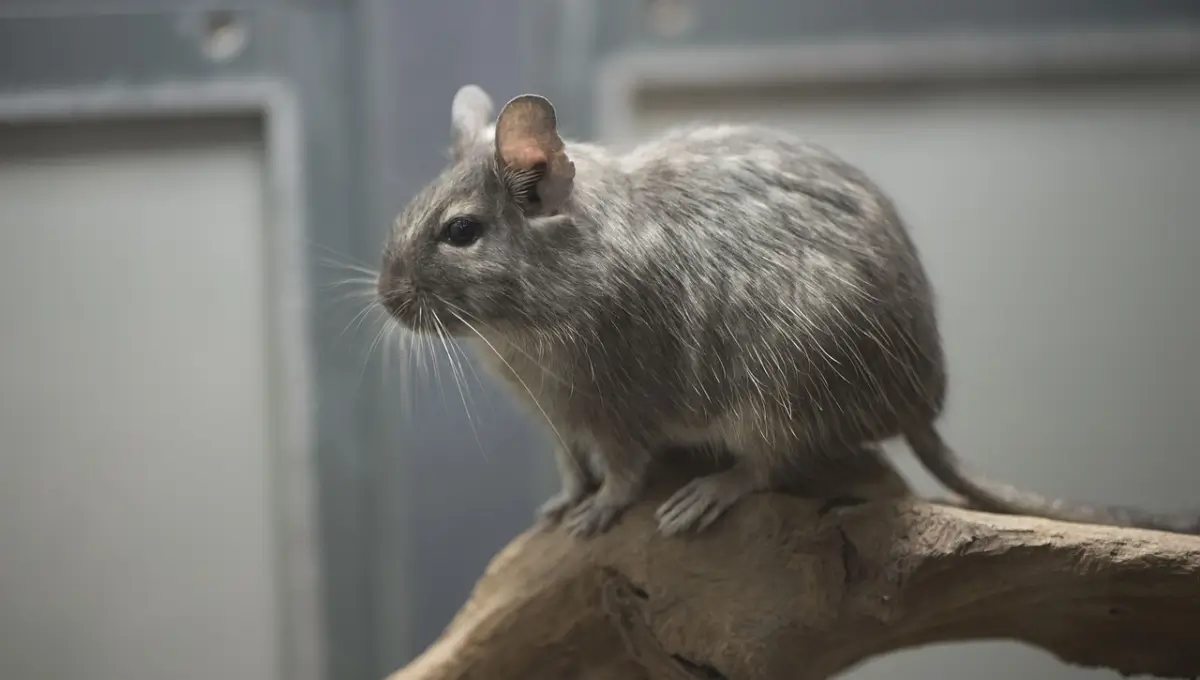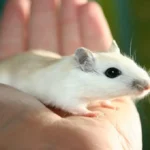When considering adding a furry friend to your family, rodents can be a charming choice due to their intelligence, playful nature, and the strong bonds they can form with their owners
However, potential pet owners often hesitate, worried about the possibility of unpleasant odors filling their living spaces. The truth is, while all pets require maintenance to keep their living environment clean and odor-free, some rodent pets are naturally less smelly than others.
This article explores the world of rodent pets, focusing on those that are known for being the least odorous, making them ideal companions for individuals with sensitive noses or smaller living spaces.
Understanding Rodent Odors
Before diving into which rodents make the least smelly pets, it’s essential to understand what contributes to pet odors in the first place. The primary factor is the animal’s living environment.
A clean, well-maintained cage is crucial in preventing odors, regardless of the pet’s species. The type of bedding used, the diet fed to the pet, and the natural odor of the species also play significant roles in how much or little a pet might smell.
- Cage Cleanliness: Regular cleaning and the right type of bedding can significantly reduce odors. Neglecting cage maintenance can lead to a buildup of urine and feces, which are primary sources of bad smells.
- Diet: What a rodent eats affects its waste’s smell. A balanced, appropriate diet can help minimize odors.
- Natural Odor of the Species: Some rodents naturally produce less odor due to their physiological characteristics and living habits in the wild.
What Are The Least Smelly Rodent Pets?

Now, let’s explore the rodents that are known for being on the more fragrant side of the spectrum, making them ideal pets for those concerned about odors.
Gerbils
These small, desert natives are at the top of the list for least smelly pets. Gerbils produce minimal waste, and their urine is less potent than that of many other rodents due to their adaptation to arid environments. They are also fastidious cleaners, spending a significant amount of time grooming themselves and their cage mates.
Chinchillas
Like gerbils, chinchillas are desert animals and have adapted to conserve water, resulting in very dry, minimal waste that produces little odor. They are also known for their dust baths, which they use in place of water to keep their thick fur clean and odor-free. However, their fluffy fur and the need for a dust bath can require a bit more maintenance than some other rodents.
Rats
Despite common misconceptions, rats are incredibly clean animals. They frequently groom themselves and can even be litter trained, which helps keep their living space tidy. The key to a smell-free rat habitat is regular cleaning and providing ample space for them to live comfortably. Rats are also highly social and intelligent, making them engaging pets for those willing to invest in their care.
While hamsters and mice are popular choices for rodent pets, they tend to have stronger odors due to their more frequent urination and the potent smell of their urine. Guinea pigs, although larger and generally clean, can produce a noticeable smell if their living conditions are not meticulously maintained due to their larger size and the volume of waste they produce.
Choosing a rodent pet comes down to balancing your desire for a low-odor companion with the time and effort you’re willing to invest in their care. With the right approach, any of these rodents can make a delightful, minimally smelly pet.
Also read: How To Stop Gerbils Smelling?
Care Tips to Minimize Odors
Maintaining a fresh-smelling home with rodent pets is entirely achievable with some diligence and know-how. Here are essential care tips that can help minimize odors, ensuring a pleasant environment for both you and your pet.
Regular Cleaning and Maintenance: The cornerstone of odor control is cleanliness. Establish a routine for daily spot cleaning to remove uneaten food, waste, and soiled bedding. A deeper clean, involving washing the cage with pet-safe disinfectants and replacing all bedding, should be done weekly. For rodents like gerbils and chinchillas, less frequent deep cleaning is necessary due to their dry waste, but regular maintenance is still crucial.
Choosing the Right Bedding: Opt for absorbent, odor-controlling bedding materials like recycled paper or aspen shavings. Avoid cedar or pine shavings, as they can be harmful to your pet’s respiratory system. Bedding should be several inches deep to absorb waste effectively and should be completely changed during your weekly cage cleaning.
Diet Tips to Reduce Smells: A balanced diet not only contributes to your pet’s overall health but can also reduce the odor of their waste. Provide a diet appropriate for your specific type of rodent, focusing on high-quality pellets, fresh vegetables, and occasional fruits. Avoid overfeeding and remove uneaten fresh food before it spoils to prevent bad smells.
FAQs
Do male or female rodents smell more?
Generally, male rodents may have a stronger odor due to their territorial marking habits, which involve urine. However, this can vary significantly between species and individuals.
How often should I clean my rodent’s cage?
Spot clean every day to get rid of trash and leftover meals. Perform a full cage clean, including bedding replacement and cage washing, at least once a week. Some species, like gerbils and chinchillas, may require less frequent deep cleans due to their dry waste.
Can bathing my rodent reduce smells?
Most rodents, especially desert species like gerbils and chinchillas, should not be bathed in water as it can strip their fur of essential oils and cause stress.
Chinchillas require dust baths to keep their fur clean, while other rodents generally maintain cleanliness through self-grooming. Only bathe your pet if absolutely necessary and consult a vet for the safest method.
What bedding is best for odor control?
Recycled paper products and aspen shavings are excellent for odor control and are safe for most rodents. Avoid cedar and pine shavings, as they contain oils that can be harmful to your pet.
Conclusion
Rodent pets can be delightful companions, offering unique personalities and engaging behaviors. While the concern about odors is valid, understanding which species are naturally less smelly and implementing proper care techniques can make a significant difference.
Gerbils, chinchillas, and rats stand out as the least smelly rodent pets, each with their own set of care requirements and benefits. By maintaining a clean living environment, choosing the right bedding, and providing a balanced diet, you can enjoy the company of these fascinating creatures without worrying about unpleasant smells.
Remember, the key to a happy, healthy, and odor-free rodent pet lies in regular care and attention to their specific needs.











